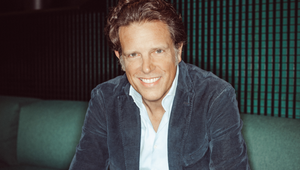
#ReinventingSociety: The Dysfunctional Handling of Fear

Anyone who has already lived knows about this correlation: the greatest leaps in development always occur when you – voluntarily or involuntarily – leave your comfort zone. The more intense the crisis you were able to overcome, the greater the leap in development. And life teaches us that too: these leaps in development are usually not completely painless.
What applies to children (keywords: teething troubles, puberty) as well as to adults (keywords: defeats, strokes of fate and other crises), also applies to societies. And so we currently experience an – involuntary – departure from the comfort zone on the most diverse levels, triggered by an invisible virus called Covid-19.
Now, as is well known, there are different reactions in dealing with crises. Some simply negate and repress them, others are paralysed by feeling helpless and powerless, others fall into blind actionism – these are all different strategies that have shaped us in our early years and which we more or less unconsciously use to try gaining control over something that is beyond our control.
The common pattern: fear
Looking more deeply, it can be observed that many of these reaction patterns have one thing in common: they are characterised by fear – fear in the most diverse forms. And if we are completely honest with ourselves, we all experience fear.
Whether we are currently afraid of a Covid-19 infection; afraid of losing loved ones; embarrassed to wear safety masks; whether we are afraid of making wrong decisions for which employees, customers or voters will punish us later; afraid of the economic effects of the shutdown; afraid of empty supermarket shelves and the associated shortage; afraid of losing our jobs; afraid of too much closeness to other people or, conversely, too little closeness; whether we fear that the collapse of the stock markets will melt away our retirement provisions; whether we worry which world our children have been born into; or whether we are afraid that history will repeat itself and we will slide into a collective disaster like we did almost 100 years ago: Basically, we're all in the same boat. The fear of losing control is eating away at us.
At the same time, we can acknowledge that we live in an era that is increasingly and rapidly marked by a loss of control. It is not without reason that it is described as VUCA: It is volatile (a constant up and down), uncertain (nothing can be relied on anymore), complex (what worked yesterday is just a toothless tiger today) and ambiguous (the two sides of a coin contradict each other or have opposite effects).
The conclusion to be drawn from this is that a society entrenched with a fear of losing control is not particularly well prepared for a future marked by VUCA. (More about VUCA here).
The consequences of a dysfunctional handling of fear
Now feeling fear is not a drama in itself, it is part of life just like everything else and is not bad per se. In certain situations it can even be very useful and protect us, as long as it does not paralyse us but activates our actions. It only becomes fatal if we do not know our fears, because then they unconsciously influence our whole thinking and acting (Self-determination? Not a bit of it!) And even if we do know them, certain skills are needed to deal constructively with our own fears - and unfortunately these are rarely taught to us by our parents or the educational system.
If we do not learn to constructively handle our fears, as a result, the best version of ourselves is clouded, and our future present is significantly shaped by the past present. We unconsciously experience the repetition of repetition in the most varied shades of colour. It is therefore not without reason that the favourite question of Miriam Meckel, editor of the German business magazine Wirtschaftswoche and the future magazine ada is: "What would you do if you were not afraid?”
Experienced experts can better describe what a skill set for individuals could look like, and how it can be acquired (see for example Klaus Eidenschink: Fears? Explanations of a current feeling (article in German)). What interests me much more in the context of the Covid-19 crisis is the following question: How can we as a society succeed in acquiring a constructive approach to fear, how can we develop the best version of ourselves and emerge stronger from this crisis, so that in retrospect we can say one day: The process was not voluntarily, we had to leave our comfort zone many times and sometimes it was painful - but it was worth it. We have achieved a huge leap in development together. Because we look at ourselves, at life and at our future with confidence.
Our society needs positive narratives
Everybody knows the concept of a "Self-fulfilling Prophecy": Our inner attitude influences our perception and has a direct influence on the outer reality we experience. If we consider in this context that fears are always individual (Covid-19 triggers different fears in different people - see examples above) and that these fears significantly shape our thinking and acting, it quickly becomes clear that we - without realising it - severely limit our future potential. Because the probability that our currently very present fears will be confirmed in the future present is high.
Therefore, it cannot be overestimated how much we need positive narratives that are a conscious contrast to the inner narratives fed by our fears, especially in collective times of crisis like these. Not only collective social distancing, but also collective fear distancing is the order of the day.
An example of such an alternative narrative is the post-Covid-19 scenario of futurologist Matthias Horx: A Backwards Corona Forecast: Or how we will be surprised when the crisis is “over“.
Looking back to the present
Inspired by Matthias Horx’s stylistic device of RE-gnosis (as opposed to PRO-gnosis), I also dare to look back at the present hoping to also motivate others to develop further positive narratives of the future:
Looking back, we see that our fear of an economic collapse was unfounded. Sure, the economy looks different now than it did in the last decade - but there are positive aspects to it.
Smaller and local suppliers are emerging stronger, thus promoting a sense of regional belonging as well as responsibility and social cohesion. Consumption has become more responsible in large parts of society - loosely based on the maxim: less is more - and with the nice side effect that we are making great progress in climate protection. And working from home is no longer considered a career killer. On the contrary. The productivity gains experienced in 2020 as a result of greater self-determination, the elimination of major time-eaters such as traffic jams or long journeys, and the self-discipline in virtual meetings that has now become the norm have convinced even the biggest opponents of a trust-based corporate culture. With the positive side-effect that conurbations are relieved and regions that were previously left behind gain momentum, since in many industries physical proximity is no longer of central importance for value creation.
In addition, the year 2020 has initiated an incredible innovation push. Not only in existing organisations and administrations, but also among many private individuals. The loss of income, the solidarity experienced during the crisis, and the opportunities offered by the digital economy has pushed innovative thoughts. And so it has become popular to outdo each other with even better ideas - instead of dumbing ourselves down with TV shows or irrelevant social media talk. Because it has also become clear to many people - we must take our future in our own hands and not leave it to politicians alone.
We are also astonished to note that the fear of our health system collapsing due to horrendous cost increases was also unfounded. For many people, the coronavirus crisis turned out to be a salutary shock to feel more responsible for their own health again. Inspired by John F. Kennedy's legendary sentence: “Don't ask what your doctor can do for your health but ask yourself what you can do for your health to relieve the collective health system”. Meanwhile, we are surprised that we have allowed ourselves to be weakened by, for example, antibiotic-contaminated meat or a permanent overdose of sugar – both are known to have a negative effect on our intestinal flora, the most important immune system we have. For others, it was the negative thought loops and repressed emotional blockages that made us ill. And so today many redefine the terms "investment" and "retirement provision" in a completely new way. Instead of investing only in "others" (stocks, government bonds, companies) as in the past, it has become the new norm to invest in "ourselves" as well. In a lot of exercise, sufficient sleep, aspecies-appropriate diet, but also coaching and lifelong learning have become the new normal. And, surprisingly for many, diseases such as diabetes, dementia, Alzheimer's, depression and many more are on the retreat as a result and are significantly reducing costs in health budgets.
#ReinventingSociety
For this year's New Year's post on LinkedIn, I invented the hashtag #ReinventingSociety (based on the New Work Bible "Reinventing Organisations"). Little did I know that only a few weeks later this will become much more urgent. The good news is: Not only the urgency but also the chances for a collective metamorphosis have increased significantly. Because, I repeat, the greatest leaps in development always occur when - voluntarily or involuntarily – we leave our comfort zone. And that is clearly the case at present.
Without question, #ReinventingSociety is a mammoth task and certainly not a foregone conclusion. Each and every one of us is challenged here at all levels – first and foremost at the individual level. But before our fears take over again resulting in doubts or in disbelieving head-shaking because of the naivety of the concept, allow me to ask you the following question: How many butterflies would there be if caterpillars had the same fears as we humans in 2020?
Karin Maria Schertler is general manager / head of transformation & organizational effectiveness, Serviceplan Group















